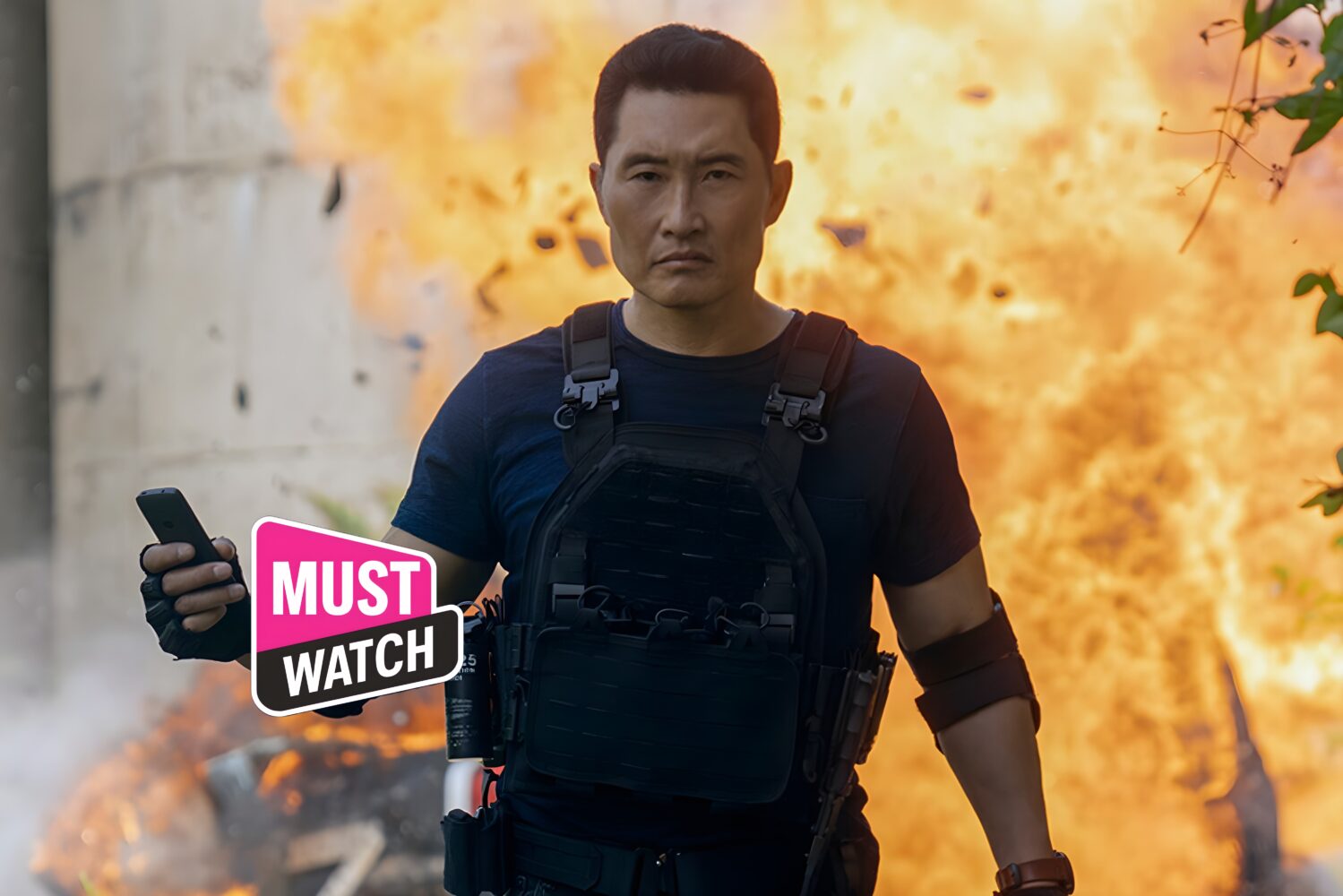TL;DR: Prime Video’s Butterfly lands a killer first season with a final twist that promises even more emotional wreckage to come. A spy thriller with a bleeding heart. Watch it now, and prepare to hurt later.
Butterfly
I didn’t expect to cry over a spy thriller. But there I was, curled up staring slack-jawed at the screen as Prime Video’s “Butterfly” detonated its Season 1 finale right in my face. What started as a punchy, stylish revenge story with familiar espionage beats turned into something far knottier, more intimate, and, by the end, heartbreakingly cruel.
Daniel Dae Kim’s David might be the first undercover agent in television history to feel more like a dad than a Bond. He cooks. He apologizes awkwardly. He knows his daughter hates him and still tries. And Reina Hardesty’s Rebecca? She makes rage look regal. But what “Butterfly” really pulled off was that delicate, impossible trick: using the tropes of international spy fiction to unspool a devastating family saga about loyalty, abandonment, and identity collapse.
When that finale cliffhanger hits—Eunju bleeding out on the bathroom tiles, Rebecca gone without a trace—the show doesn’t just up the stakes for Season 2. It rewrites the whole emotional calculus of everything that came before.
Family as Espionage: Lies, Loyalties, and Lost Time
“Butterfly” has always framed parenthood as its own kind of spy game: you lie to protect the people you love. You build false identities to survive. You betray one child to save another. David, the presumed-dead agent with a literal second family, isn’t just fighting Caddis, the shadowy organization that turned Rebecca into a weapon. He’s fighting time itself. Trying to rewind the years he abandoned her. Trying to repair the invisible damage he left behind.
Rebecca’s return to him—as a grown assassin with the emotional range of a landmine—feels less like a reunion and more like a standoff. And their scenes together hum with a sad, simmering tension. There’s no tidy reconciliation, just two damaged people trying to cohabitate the same grief. Korean rice wine and soul-baring confessions feel more charged than any shootout.
But the thing that haunted me most wasn’t their verbal duels. It was the way Rebecca looked at David’s new daughter. Her half-sister. The child who got what she never had: a father who stayed. That look was layered with envy, confusion, maybe even hope. Because under all that trauma and tactical training, Rebecca is still someone who just wanted to be loved.
The Blood on the Bathroom Floor: Did She Do It?
Here’s where the show goes full operatic: right when things seem stable—David and Rebecca laughing over dinner, Eunju finally part of the makeshift family—Butterfly swerves hard left. We hear a scream. David rushes in. His wife is dying. His daughter is gone.
And now we’re trapped in the purgatory of the unspoken: Did Rebecca kill Eunju?
The brutality of the scene isn’t just in the bloodshed. It’s in what it implies. Rebecca, for all her wounds, seemed to be softening. Starting to believe in something outside of the mission. Could she have really regressed? Or is this one last test in a world that never lets people heal?
The truth almost doesn’t matter. What matters is that David believes she did it. That split-second reaction, that ghost of betrayal in his eyes, undoes a season of hard-earned trust. And for Rebecca, that may be the deadliest wound of all.
Rebecca Alone: The Assassin with No Country
Rebecca’s arc has been one of gradual disarmament. She starts the series as a hyper-efficient killer with a loyalty to Juno, her twisted maternal mentor. But when that bond fractures, and her biological father fails her again, what’s left?
The Season 1 finale leaves her unmoored. Juno’s out. David’s suspicion cuts deep. And with Eunju gone, any hope of a new family shatters. For a character so defined by her roles—soldier, daughter, pawn—the absence of all three is a crisis of self.
There’s a version of Season 2 where Rebecca doubles down, becomes the cold-blooded force everyone thinks she is. But the smarter path—and the more heartbreaking one—would be watching her search for something resembling humanity. Watching her rebuild, slowly, from the ashes of all that lost love.
David, Broken Again
And then there’s David. Poor, stoic, endlessly suffering David. This man cannot catch a break. First he fakes his death to protect his daughter. Then he builds a whole new life, only for his past to crash through the door. Now, after risking everything to reconnect with Rebecca, he’s lost Eunju, possibly Rebecca again, and stands at another impossible crossroads.
Does he chase vengeance? Redemption? Escape?
The most poignant question the show now poses is whether David is capable of learning from his past. Will he abandon Minhee, his youngest daughter, to chase after Rebecca or justice or closure? Or will he break the cycle? Stay. Fight. Be better.
The genius of Butterfly is how it makes these questions feel personal. This isn’t just plot. It’s the emotional DNA of the story. And that’s what elevates it above its spy-thriller peers.
The Reckoning Ahead: Why Season 2 Needs to Hurt
Let’s be real: Butterfly can’t walk this back. Season 2 has to double down on the consequences. Whether Rebecca killed Eunju or not, the fracture is real. The grief is real. The trust is broken. And that’s where the best drama lives.
I want Rebecca and David to scream at each other. I want them to break plates and punch walls and grieve what they never had. I want the next season to rip through them like shrapnel. Because only through that mess can something honest emerge.
And if we’re lucky, maybe, just maybe, there’s still a future for them.
Final Verdict
Butterfly Season 1 leaves you gutted in the best way. With its razor-sharp emotional core disguised under layers of intrigue and international espionage, it’s a show that weaponizes family drama like a covert op. That finale cliffhanger is both brutal and brilliant, teeing up a Season 2 that could push its characters (and viewers) to the edge.






